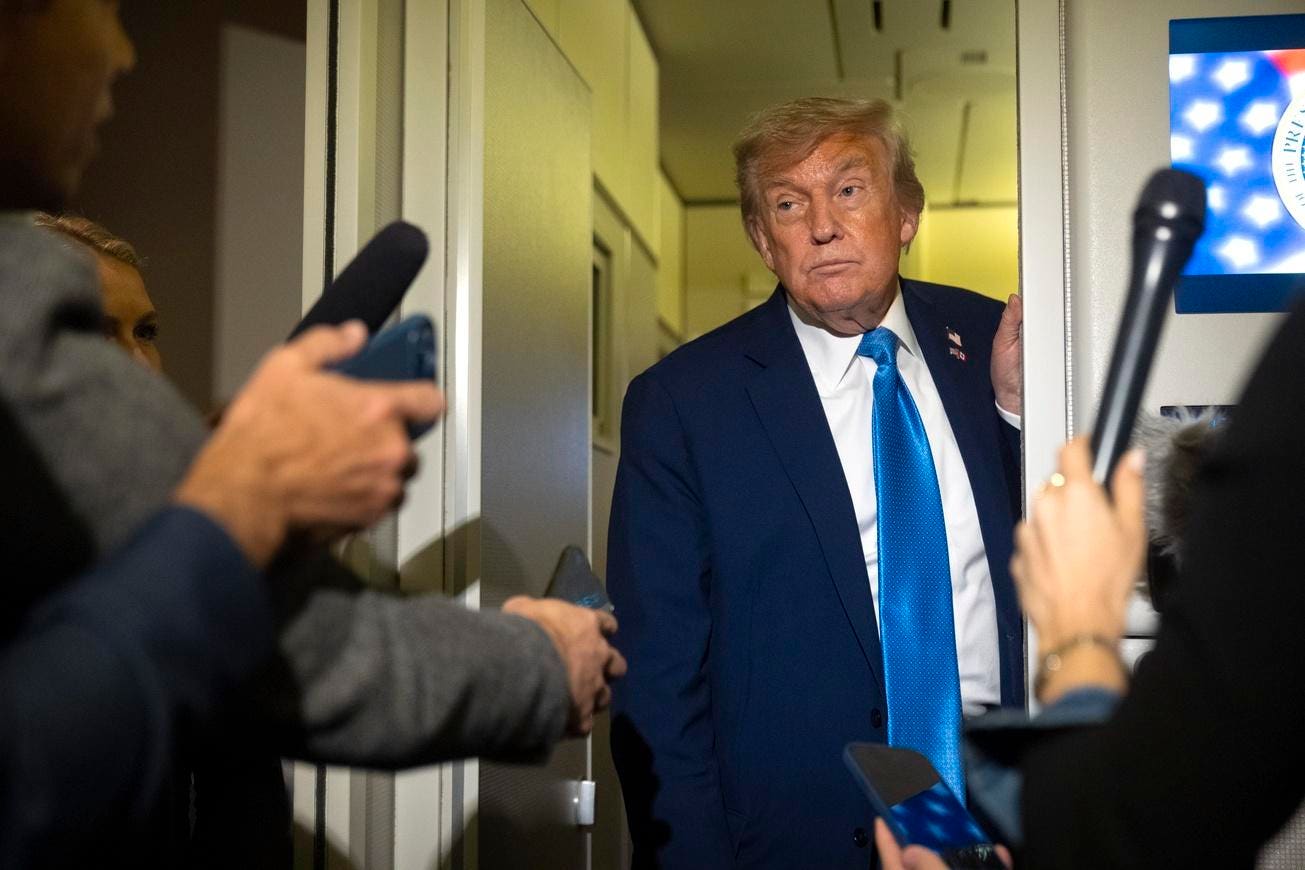Iran has firmly dismissed President Donald Trump’s assertion that the country reached out to the U.S. for assistance in negotiating its conflict with Israel, branding his remarks as a “despicable” lie. This statement comes as Trump hints at the possibility of U.S. strikes on Iran’s nuclear facilities.
In a response posted on X by the Iranian Mission to the U.N., officials declared, “no Iranian official has ever asked to grovel at the gates of the White House.” They criticized Trump for his “cowardly threat” to potentially eliminate Iran’s Supreme Leader. During a White House event, Trump said of a question regarding a possible U.S. military action, “You don’t seriously think I’m going to answer that question . . . I may do it, I may not do it, I mean nobody knows what I’m going to do.” He went on to claim that Iran had contacted his administration and suggested that the current situation is significantly different from a week ago, in light of Iran’s refusal to strike a deal with the U.S. aimed at curbing its nuclear ambitions.
Trump emphasized, “we’re not looking for a long-term war . . . I only want one thing: Iran cannot have a nuclear weapon.” He elaborated on his call for “unconditional surrender” made just a day prior, stating, “That means I’ve had it . . . I give up, no more. Then we go blow up all the nuclear stuff that’s all over the place there.”
In remarks through Iranian state media, the Supreme Leader affirmed Iran’s refusal to submit under pressure, asserting that the nation will “not surrender to anyone in the face of imposition.” He warned that any U.S. involvement in the Israel-Iran conflict would inevitably result in “serious irreparable harm.” Responding to Trump’s demands for unconditional surrender, he stated that those familiar with Iran’s history “know that Iranians do not answer well to the language of threats.”
Tensions have escalated, with reports indicating that Iran has launched over 400 missiles and numerous drones following Israeli airstrikes, which targeted key nuclear facilities and resulted in the deaths of several Iranian generals. White House sources confirmed that Trump had a conversation with Israeli Prime Minister Benjamin Netanyahu after a meeting with national security advisors; however, the specifics of their discussion have not been disclosed. Moreover, unnamed U.S. officials highlighted that Trump is seriously contemplating military action against Iran’s nuclear sites.
Trump further fueled tensions by stating on Truth Social, “We know exactly where the so-called ‘Supreme Leader’ is hiding,” in reference to Khamenei, who is reportedly becoming increasingly isolated. He added that while Khamenei is “safe,” U.S. patience with Iran’s provocations is “wearing thin.”
The conflict has historical roots, with escalating hostilities reigniting when Israel launched strikes against Iran just days prior. Netanyahu justified these actions as necessary for Israel’s survival, claiming the Iranian nuclear program presented a direct threat. Following this, Trump abruptly left the G7 summit, citing the urgent situation in the Middle East as his reason for returning to Washington early. He issued a stark warning to Tehran residents on Truth Social, urging them to evacuate, although he did not explain the rationale behind the evacuation call. Later, he expressed a desire for a definitive resolution rather than a mere ceasefire, insisting that only Iran’s complete capitulation would be acceptable.
Trump has previously indicated that the U.S. maintains superiority in air power over Iran, asserting, “Nobody does it better than the good ol’ USA.” He reiterated the need for Iran to refrain from acting against U.S. personnel or assets, threatening a severe response if they do.
Ahead of his departure from the G7 summit, Trump suggested to reporters that Iran was seeking a deal, implying that major developments would occur upon his return to Washington. Reports have surfaced that he was initially reluctant to endorse a G7 statement calling for de-escalation in the Israel-Iran conflict, though he later agreed to sign a modified version affirming Israel’s right to self-defense and condemning Iran as a source of regional instability.
Regarding potential dialogues with the U.S., Iranian Foreign Minister Abbas Araghchi noted that Iran would be open to resuming discussions if Israel ceased its military actions. He urged that “It takes one phone call from Washington to muzzle someone like Netanyahu” to pave the way for diplomatic engagement.

